Knowing my interest in left-leaning literary movements, a friend asked me to recommend women Urdu poets who may have been active during the great upsurge that we recognise as the Progressive Writers’ Movement (PWM). It set me thinking. Of course, I could rattle off names of all the great Urdu progressive poets – Faiz, Sardar Jafri, Kaifi Azmi, Majaz, Akhtarul Iman, the list is long and illustrious.
But I found myself hard pressed to find even one woman poet, writing in Urdu, who could be counted as a ‘progressive’ and was reading alongside the male poets in mushairas at a time when the progressive movement was at its most vigorous, i.e. the mid-1930s till mid-1950s.
In Hindi, on the other hand, we have the remarkable Subhadra Kumari Chauhan and Mahadevi Verma, and Amrita Pritam in Punjabi during that period.
Of course, the PWM did not die and wither away after the 50s; it simply shrank in importance and was no longer the ideologically hegemonic force it once was, though it has left its mark on Urdu literature for all time.
Where Were ‘Progressive’ Women Poets in Urdu?
The progressives were robust upholders of feminism who made every effort to bust patriarchy in their writings. They encouraged the participation of women in their meetings; Dr Rashid Jahan was a founder-member of both the PWA (formally established in 1936) and its sister organisation the IPTA (set up in 1943). Many women were to be found among their ranks and were published in the influential journals and magazines edited by them, such as Ismat Chughtai, Hajira Masrur, Khadija Mastur, Siddiqa Begum Seoharvi, Shakila Akhtar, and Sarla Devi. But they wrote fiction, not poetry.

Why was this so? Was it the very nature of women’s writing in the first half of the last century that discouraged poetry? Was it the late arrival of literacy among women in South Asia and consequently their late blooming in literature per se, and later still in poetry?
Or, was there something in Urdu poetry in itself, in the ghazal in particular, something in its very DNA that made it a male preserve?
A search for answers requires a brief look at recent literary history.
Writing the Feminine in Urdu
The tradition of ecriture feminine (‘writing the feminine’) is not a very old one in Urdu, and in prose—especially fiction—it is just about a 100-odd years old. There have always been men writing as women, that is, in women’s voices or of women and about women, making women both subject and predicate. But it took a long time for women to find a real voice in Urdu literature.
In Urdu poetry, while the voice may be that of a lovelorn woman suffering from the pangs of separation, a discontented concubine, or a young woman on the verge of marriage, the writer was invariably male.
And it has been regarded as perfectly acceptable for men to write in women’s voices on so-called women’s issues expressing womanly concerns. This vocal masquerade has been taking place for centuries and has been taken quite for granted.
From Chand Bibi to Zehra Nigah
Chand Bibi, better known as Mah Laqa Bai Chanda (1768-1820) is popularly believed to be the first published woman poet in Urdu. A courtesan dancer in the princely state of Hyderabad, she moved from seducing men for money and power to pursuing a mystical devotion to Maula Ali – a movement that is amply reflected in her poetic ouvre.
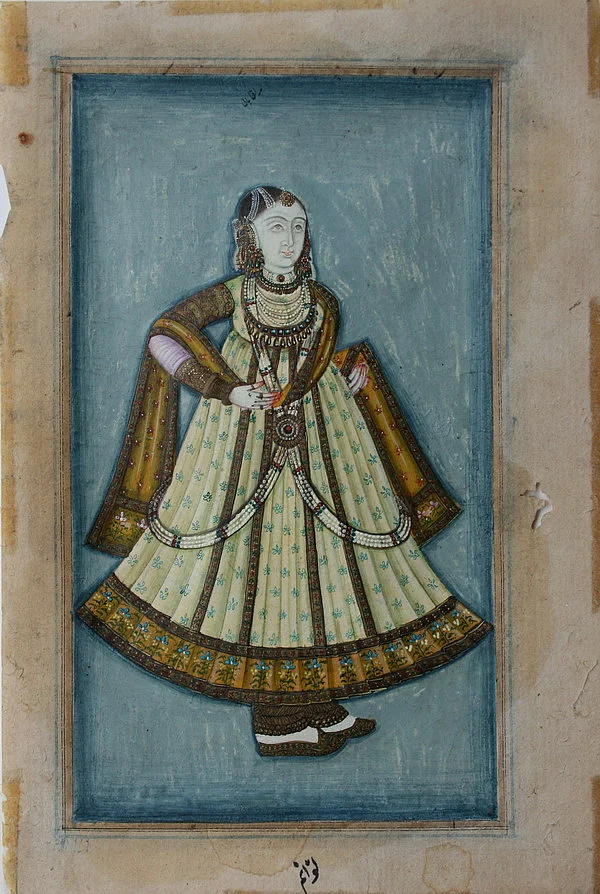
Her poetry displays an extraordinary blend of Shia piety (almost all her poems contain an invocation to Maula Ali) and seductive power, at once elegant, articulate and yet unconventional. Here's a sample:
I'll toss the record of Chanda's deeds into passion's churning waves
If Ali, the forgiver of my sins, with a wine-cup my way comes
After Mah Laqa Bai there was a long gap when women from ‘shareef’ families would either not write poetry, or not write it for public consumption. The Mughal harem did, indeed, have many educated, accomplished, articulate women, some of whom wrote family histories such as Gulbadan Begum, or Sufi treatises, such as Aurangzeb’s sister Jahanara. But it was left to the historian to excavate these ‘lost’ voices; in their own time and age they remained cloistered within the zenana. For all practical purposes, it has been a long journey from a Mahlaqa Bai to a modern-day woman poet such as Zehra Nigah.
Zehra Nigah: More Feminine than Feminist
Zehra Nigah appeared on the literary horizon as a child prodigy in the early-950s and has consistently been hailed as the one voice worth listening to in the Babel of the mushaira circuit. When she began to make a mark as a poet in the 1950s and 60s, women who recited their poetry in public were a rarity.
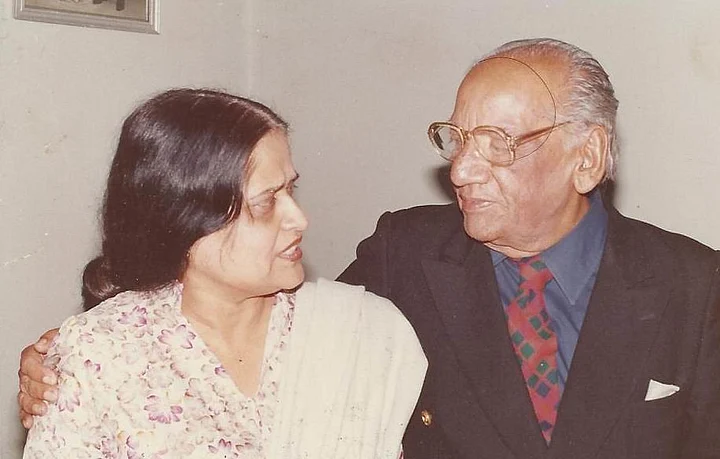
Women from respectable families were not encouraged to come on stage to recite their poetry let alone express themselves with any degree of sensuousness. So, a young Zehra Nigah hid her femininity behind demureness, read her poems with eyes downcast and scuttled back to the safe haven of domesticity. But the sheer lyricism of her words, the engaging simplicity of her poetic idiom, and the sharp insightful comments couched therein built a formidable reputation and amassed a legion of admirers.
To this day, a hush invariably descends at noisome mushairas when she stands up to recite her poetry. While her recent poetry deals with the war in Afghanistan, the Pakistani debacle in Bangladesh, the repressive Hudood Ordinances in her own country, female foeticide, purdah and so on, her early poetry that coincided with the glory days of the Progressives can not be said to be progressive; it was feminine rather than feminist.
Bolder Feminists After Progressive Writers’ Movement
She was followed by younger contemporaries who wrote bold, outright feminist poetry such as Fahmida Riyaz, Kishwar Naheed and Sara Shagufta in Pakistan. In India we can identify two women, significant in their own way but in no way connected with the PWM nor considered ‘progressive’ poets according to the definition set by the Movement: Bano Darab Wafa (1926-2005) from Lucknow and Bilquis Zafirul Hasan (b. 1938) from Delhi.
We are still, however, left with the unanswered question of why there were NO women poets – not few and far between – among the Urdu progressives. Asked to offer plausible reasons, Javed Akhtar who grew up in the lap of the PWM (both his parents being active members) and enjoyed a ringside view to its triumphs and glories confesses to being at a loss.
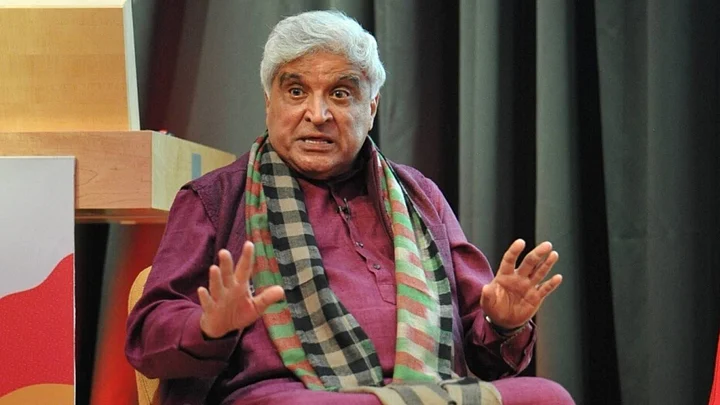
Urdu poetry had, till then, been the language of love, employing the tropes of separation and union with the beloved, he says, whereas the newly-emerging genre of fiction dealt with reality.
Had women seized the space that was a hitherto masculine preserve, it would have been “too much of a liberty”. Citing the example of Zehra Nigah who was the only woman active as a poet then but not a progressive poet, he says how her poetry uses ‘hum’ (we/us) not ‘main’ (I/me) and how Zehra apa’s grandmother advised her to stay off subjects that were too personal.
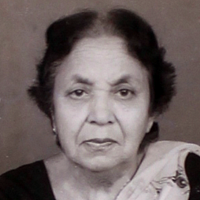
He cites Bano Darab Wafa as the ‘only chink in the progressive armour’ when she produces a sher such as:
Kuredta hai bahut raakh mere maazi ki
Main chuuk jaoon to woh ungliyan jala lega
He scours the ashes of my past a great deal
One mistake from me and he will burn his fingers
What Gulzar Says About this Absence
Gulzar, who attended the meetings of the Bombay progressives as a young man, cites both patriarchy and craft as a possible reason.
‘Uss daur ko iss daur se nahi naapa jaa sakta’ (‘That age cannot be judged by the yardstick of this age’), he says, pointing out how society changes and so do rules, values, attitudes. Samaji riwayaat (‘social traditions’) were not in favour of women writing poetry in Urdu.
Some women such as Salma Siddiqui (a fine prose writer in her own right but better known as the wife of the famous Urdu progressive Krishan Chandar), Hajra and Khadija wrote tolerably good poetry in the early days but soon moved to prose. ‘Craft daraata hai,’ (‘Craft can scare,’) he says; it requires a discipline that fiction does not. Also, ‘ghazal ka mizaaj alag hai’ (‘the tone and tenor of the ghazal are unique’) as it is essentially about ‘pure romance’; a woman’s haya and sharam (modesty) would not have allowed her to write it then.
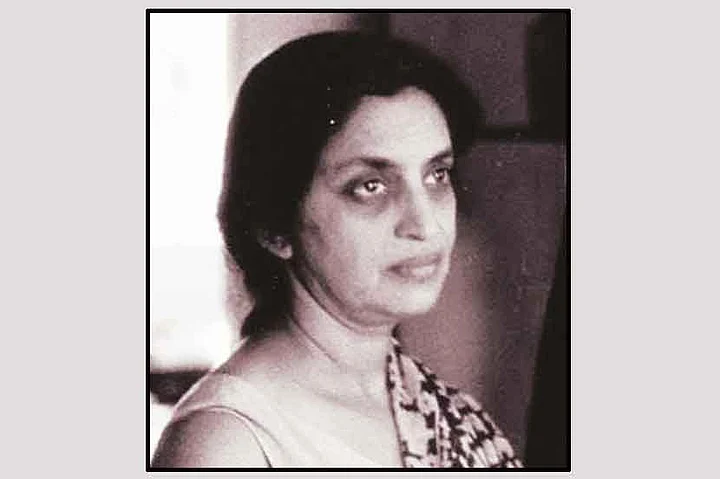
There are some people in Rajasthan, Gulzar points out, who still refer to Mira as a ‘raand’. Steeped in bhakti though her bhajans are, they are different from other Bhakti poets such as Raidas or Tulsi. Mira had a distinctly romantic flavor that sets her apart.
Khalid Alvi who has written extensively on the modern trends in the Urdu ghazal, minces no words when he says, ‘poetry can be written on women; women cannot write poetry…. which explains why there are only a handful of big names of women poets in all the major languages.’ Literary histories throw up uncomfortable, unpalatable, truths. Is this one of them?
(Dr Rakhshanda Jalil is a writer, translator and literary historian. She writes on literature, culture and society. She runs Hindustani Awaaz, an organisation devoted to the popularisation of Urdu literature. She tweets at@RakhshandaJalil. This is an opinion piece and the views expressed above are the author’s own. The Quint neither endorses nor is responsible for the same.)
(At The Quint, we are answerable only to our audience. Play an active role in shaping our journalism by becoming a member. Because the truth is worth it.)
